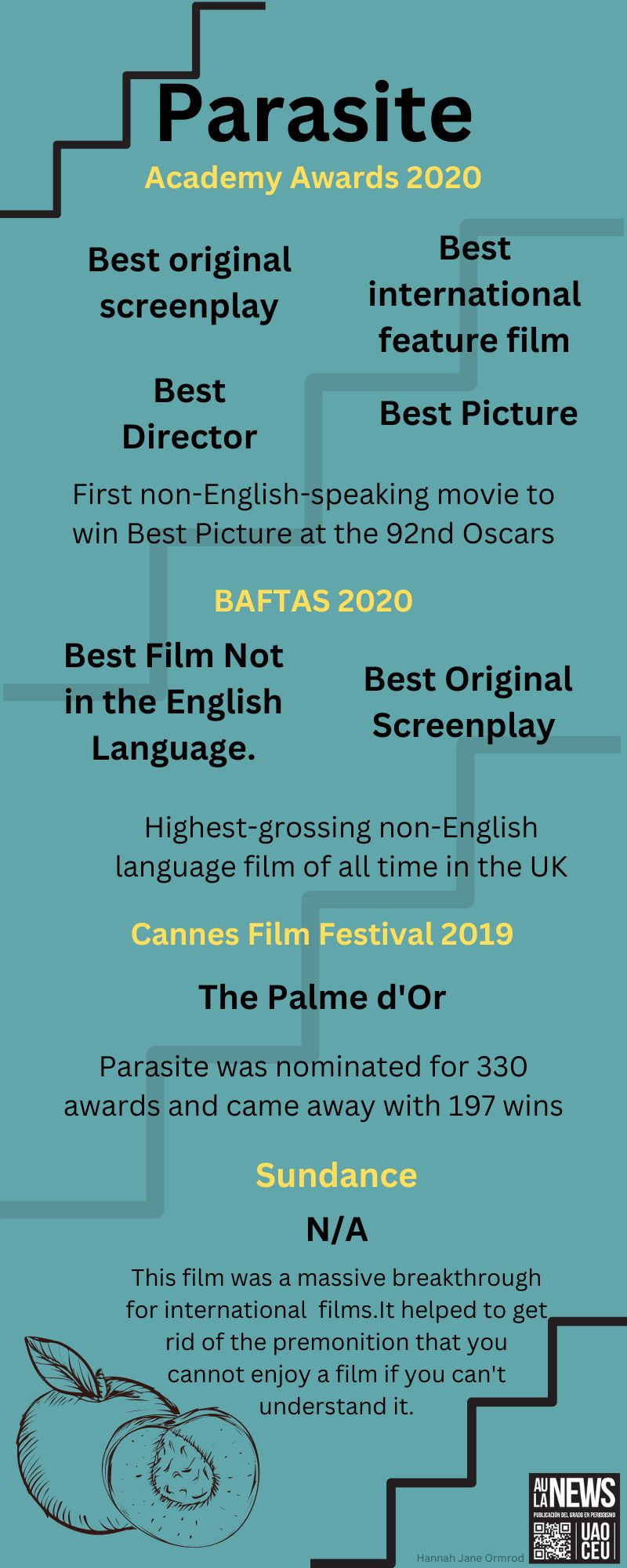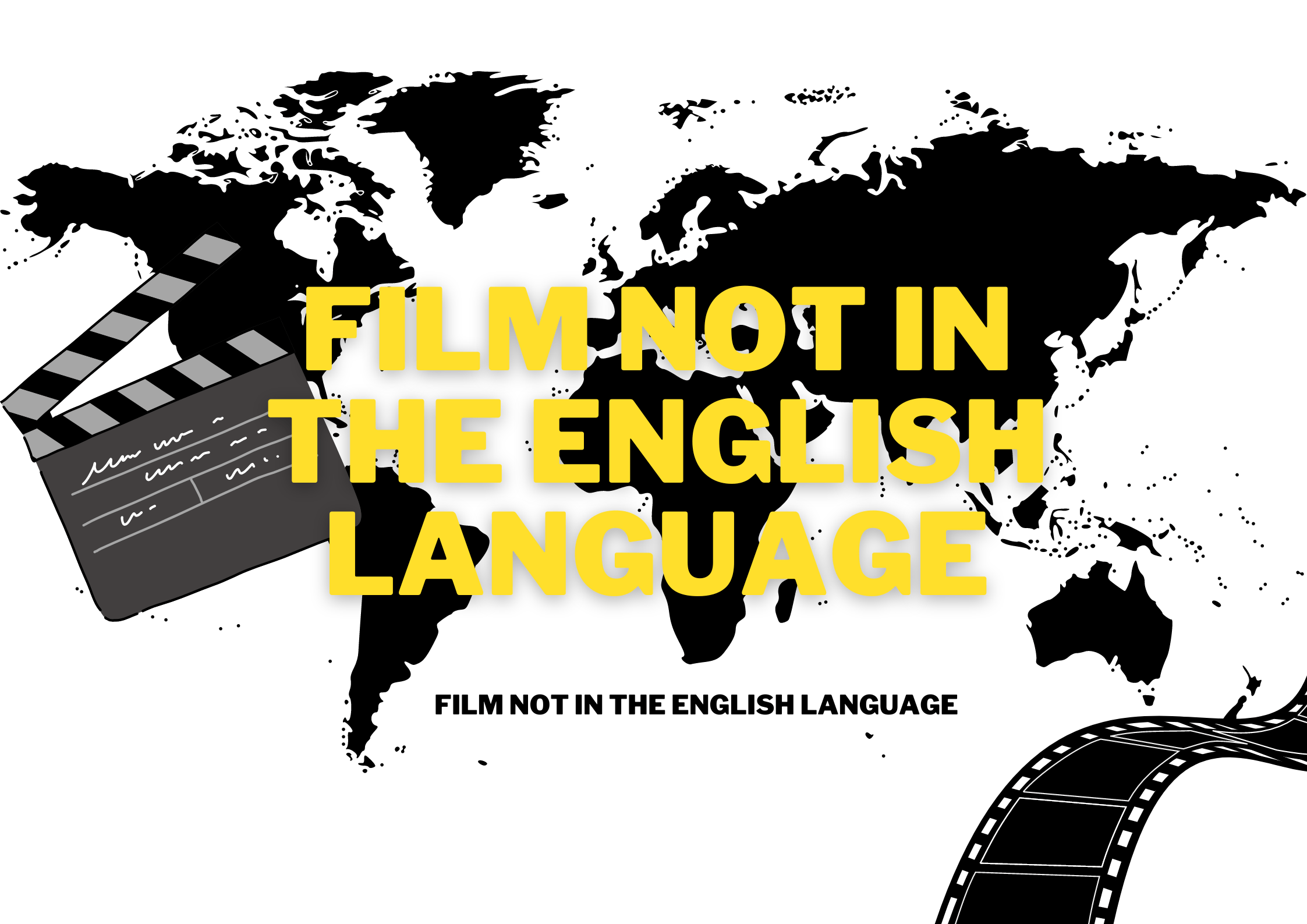Creatives have been making films in many languages outside of English for a very long time. As the world becomes more connected and people with all sorts of language backgrounds move around the world, we get the opportunity to learn and discover international film even if we don’t understand the primary language spoken.
International films are being recognised more and more in the major award shows; specifically covering the Academy Awards, BAFTAS, Cannes film festival and Sundance film festival. In these prestigious events within the film industry, can you have the same respect for a film in your native language , and, can you appreciate films outside of this?
International film festival vs Award shows
The Oscars introduced their award for international films/films in a language not in English in 1956. BAFTAS did not introduce the category until 1983. Since then, there has been many winners from a multitude of countries and nations. Both Sundance and Cannes don’t have defined categories for films not in English; Sundance has a world cinema category broken down into genre, and Cannes does not separate the films other than by genre. In Cannes all films must have subtitles, if in English it must have French subtitles and if in a language outside of English (incl. French) they must have English subtitles. This could be the direction that these Academy awards end up following. Although they don’t have public and ticketed screening and therefore work under different circumstances this could still work.
When looking at the Oscars and BAFTAS long history of winners it is interesting to look at the statistics of the countries and languages with wins.
Oscars
| Europe | 57 wins – 74% |
| Asia | 9 wins – 12% |
| Africa | 3 wins – 4% |
BAFTAS
| Europe | 28 wins – 70% |
| Asia | 8 wins – 20% |
| South America | 5 wins – 10% |
This data presents the trend of European films dominating these categories by an incredibly high margin. This leads to the question, is it because of the familiarity of these languages to English speaking countries, is it geographical or is it cultural and the differences in the content we are consuming as a result of all three. Typically, presumably for the reasons mentioned above, international films tend not to win awards outside of the designated international categories. Italy triumphs the category with 14 wins for best international film. Italy is known for creating very visually beautiful work which helps with the universal aspect of cinema specifically this film category.

Parasite
Although this looks to be changing with 2019s Parasite. Parasite swept across award season 2020, taking in its glory. The first ever film not in English to win the Academy Award for Best Picture. This is incredibly important in the industry as it has shown investors that’s films in languages outside of English can be successful, make money and appeal to the masses. When accepting the award for best film in a foreign language at the Golden globes the director, Bong Joon Ho spoke of how once you “overcome the one-inch-tall barrier of subtitles”, the creative world becomes much larger and colourful. You become exposed to so many more ways of storytelling that haven’t been explored in the English-speaking industry yet.
Future Opportunities
Parasites success opens the doors to other filmmakers and increases their chances at financing their film. For example, we can look at one of the nominees for this years academy awards. An Caitlin Ciúin (The Quiet Girl) is a film set in rural Ireland where the language spoken is predominantly Irish. This it the first film in this language to ever be nominated for an academy award. Irish is a dying language, with only 38% of Irish people actually speaking the language as of 2016. It’s a language that’s not very well know outside of the country so this film getting such prestigious attention is doing a lot for the film industry in Ireland but also for the language itself.
In conclusion, consumers still have a long way to go in terms of getting over that “one inch barrier” and once they do we can expect to see much more success from international film globally. But with the last few years we can see the change in landscape and the industry is making way for films outside of the English language. Hopefully in a few years we can change the category to a less discriminatory one. One that avoids “othering” different and unfamiliar languages and categories.
